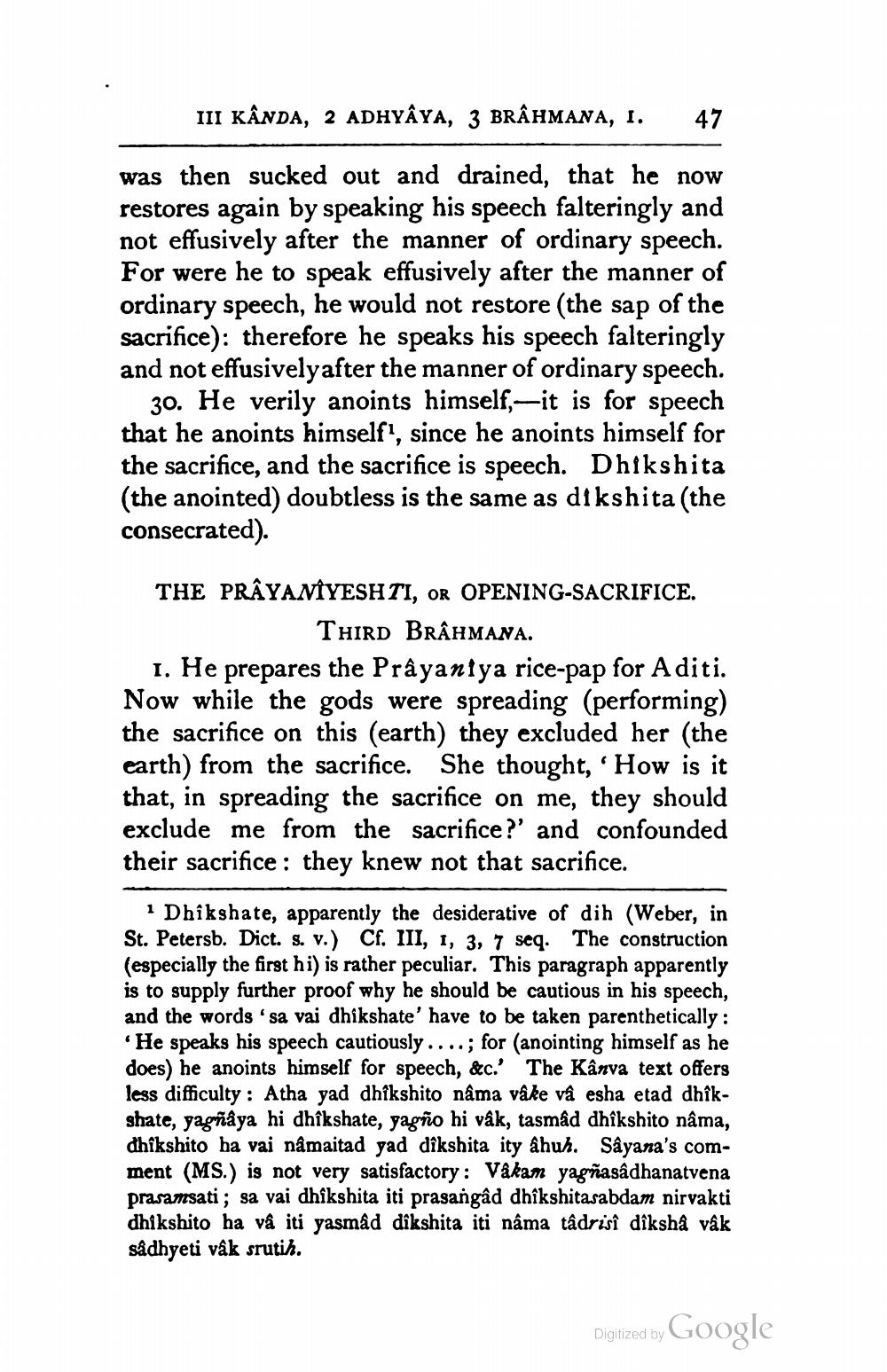________________
III KÂNDA, 2 ADHYAYA, 3 BRÂHMANA, I.
47
was then sucked out and drained, that he now restores again by speaking his speech falteringly and not effusively after the manner of ordinary speech. For were he to speak effusively after the manner of ordinary speech, he would not restore (the sap of the sacrifice): therefore he speaks his speech falteringly and not effusivelyafter the manner of ordinary speech.
30. He verily anoints himself,—it is for speech that he anoints himself', since he anoints himself for the sacrifice, and the sacrifice is speech. Dhikshita (the anointed) doubtless is the same as dikshita (the consecrated).
THE PRAYANİYESHTI, OR OPENING-SACRIFICE.
THIRD BRÂHMANA. 1. He prepares the Prayantya rice-pap for Aditi. Now while the gods were spreading (performing) the sacrifice on this (earth) they excluded her (the earth) from the sacrifice. She thought, 'How is it that, in spreading the sacrifice on me, they should exclude me from the sacrifice?' and confounded their sacrifice : they knew not that sacrifice.
i Dhikshate, apparently the desiderative of dih (Weber, in St. Petersb. Dict. s. v.) Cf. III, 1, 3, 7 seg. The construction (especially the first hi) is rather peculiar. This paragraph apparently is to supply further proof why he should be cautious in his speech, and the words 'sa vai dhikshate' have to be taken parenthetically:
He speaks his speech cautiously....; for (anointing himself as he does) he anoints himself for speech, &c.' The Kânva text offers less difficulty : Atha yad dhỉkshito nama vâke vâ esha etad dhîkshate, yagñaya hi dhîkshate, yagño hi vâk, tasmad dhîkshito nâma, dhikshito ha vai namaitad yad dikshita ity ahuh. Sayana's comment (MS.) is not very satisfactory: Vakam yagñasâdhanatvena prasamsati; sa vai dhikshita iti prasangâd dhikshitasabdam nirvakti dhikshito ha vå iti yasmad dikshita iti nama tâdrisi dikshå vâk sådhyeti vâk srutih.
Digitized by Google




